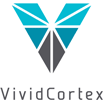Distributed Systems sessions
Failure is inevitable given the complexity of our systems. This track dives deep into the principles and practices for designing and managing systems that are secure, robust, adaptable, and can recover gracefully from failure.
Track host
 Emily Shea (Fastly) is a Senior Software Engineer at Fastly, where she works on the platform for delivering core CDN configurations, and writes Perl. In a past life, she worked in HR at mobile gaming companies. Emily holds a BA in Architecture from UC Berkeley, and in her spare time likes to hang out in parks with her dog, named Chicken.
Emily Shea (Fastly) is a Senior Software Engineer at Fastly, where she works on the platform for delivering core CDN configurations, and writes Perl. In a past life, she worked in HR at mobile gaming companies. Emily holds a BA in Architecture from UC Berkeley, and in her spare time likes to hang out in parks with her dog, named Chicken.
 Sean Allen (Wallaroo Labs)
Sean Allen (Wallaroo Labs)
 Christian Grabowski (NS1)
Christian Grabowski (NS1)
 Kyle Kingsbury (Jepsen)
Kyle Kingsbury (Jepsen)
 Tyler McMullen (Fastly)
Tyler McMullen (Fastly)
Sponsorship Opportunities
For exhibition and sponsorship opportunities, email velocity@oreilly.com
Partner Opportunities
For information on trade opportunities with O'Reilly conferences, email partners@oreilly.com
Contact Us
View a complete list of Velocity contacts
©2018, O'Reilly Media, Inc. • (800) 889-8969 or (707) 827-7019 • Monday-Friday 7:30am-5pm PT • All trademarks and registered trademarks appearing on oreilly.com are the property of their respective owners. • confreg@oreilly.com




















